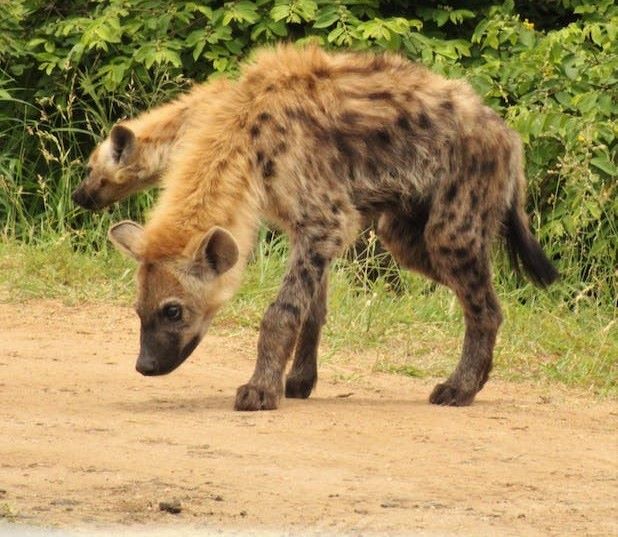If you’re considering a hunting safari in South Africa, you might be curious about the cost of targeting a hyena. Hyena hunting offers a unique challenge and adds an exciting element to nocturnal hunts. In South Africa, there are three types of hyenas you can hunt: the spotted hyena, the brown hyena, and the aardwolf.
The cost of hunting these fascinating creatures varies depending on several factors. These include the type of hyena, the region, and the specific hunting method used. Understanding these costs can help you plan your safari more effectively and ensure you have an unforgettable experience. Let’s dive into what you can expect when budgeting for a hyena hunt in South Africa.
[DYNAMIC-BLOGTABLEOFCONTENT]
Key Takeaways
- Variety of Hyenas: In South Africa, you can hunt three types of hyenas: spotted hyena, brown hyena, and aardwolf, each offering different challenges and experiences.
- Cost Influencers: The cost of hunting a hyena varies, influenced by factors such as hyena type, region, and the hunting method used.
- Hunting Methods: Common hunting methods include baiting from a blind, using distress calls, and the spot-and-stalk approach, catering to the nocturnal nature of hyenas.
- Habitat and Legalities: Hyenas thrive in diverse habitats like semi-arid scrub and savannas. A species permit is mandatory, emphasizing legal and ethical hunting practices.
- Preparation Insights: Proper gear, physical fitness, and engaging local guides enhance the hunting experience, ensuring safety and success.
Overview Of Hyenas In South Africa
Hyenas in South Africa represent a unique and challenging hunting opportunity. The three species of hyenas – spotted hyena (Crocuta crocuta), brown hyena (Parahyaena brunnea), and aardwolf (Proteles cristata) – offer diverse experiences in the wild. The spotted hyena, the largest of the bunch, habituates both inland and coastal regions. Meanwhile, the brown hyena, the rarest species, presents an enticing target for those seeking rarer trophies. The aardwolf, although less commonly hunted, still attracts enthusiasts.
Habitat And Behavior
Hyenas thrive in semi-arid scrub, open plains, and dry savannas, making South Africa a prime location for these nocturnal predators. Their adaptability to varied habitats ensures ample hunting grounds, particularly in well-known locations such as the Greater Kruger National Park and the Limpopo province. These areas are distinguished for their high hyena populations, providing numerous hunting opportunities.
Hunting Methods
Three primary hunting methods exist for hyenas. The first involves baiting from a blind, where bait is set up prior to the hunt to attract the hyenas. This method requires patience as hunters wait for the hyena to approach. The second involves calling, which uses distress calls to draw the predator within range. Lastly, spot-and-stalk, though more challenging due to the hyena’s nocturnal nature, remains a thrilling approach.
Legal Considerations
A Species permit is a legal necessity before embarking on a hyena hunting safari. Regulatory compliance is crucial for ethical and lawful hunting, ensuring sustainability and conservation efforts are adhered to. Our hunts prioritize these principles, contributing to the balance within the ecosystem.
Check out more on hyena hunting and other game opportunities here.
This section’s insights provide a detailed look at the types of hyenas, their habitats, and the methodologies employed in hunting them, framing a comprehensive understanding for those planning a hunting expedition in South Africa.
Embarking on a hunting safari in Africa sounds like a dream, right? It’s not just about the thrill of the hunt but also about immersing ourselves in Africa’s spectacular landscapes and diverse wildlife. Plus, with the right tips and insights, planning this adventure can be as exciting as the experience itself. Let’s dive into the essentials of Game Hunting Safaris.
Game Hunting Safaris offer a unique blend of excitement, challenge, and immersion into nature. Unlike typical hunts, these safaris involve targeting a variety of game, from zebras and antelopes to the African big 5 game. It’s not just the multitude of animals, but the sheer vastness and beauty of Southern Africa that captivates us. With the assistance of professional guides, we delve into this wild realm, learning about animal behaviors, ecosystems, and the intricacies of tracking.
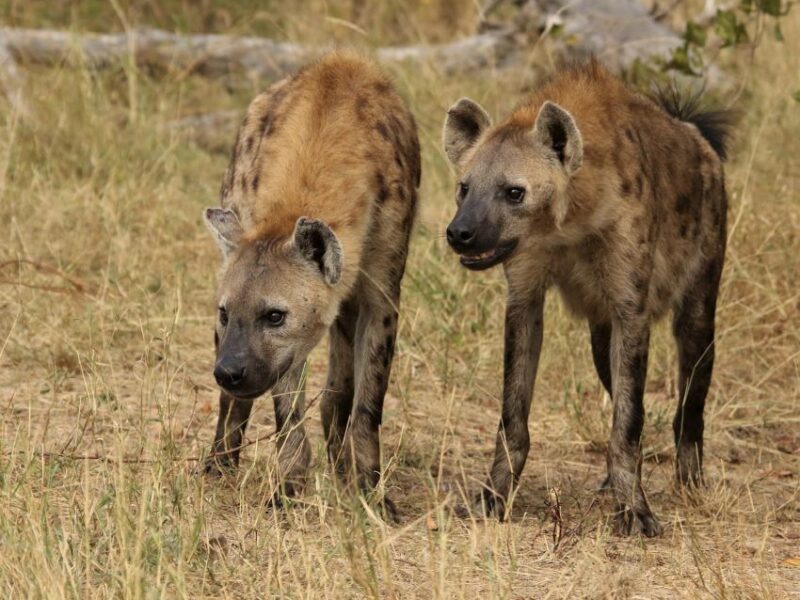
Step-By-Step Guide to Planning Your Safari
Choosing the Right Game
The first step? Decide on the game you want to hunt. Interested in cape buffalo hunts or maybe lion hunting in Africa? Whether it’s the elusive leopard hunting or the challenge of crocodiles hunting, pinpointing your target is crucial. Different animals require different strategies and licenses.
Selecting Your Safari Provider
Next up, choose a reputable provider. We’re talking about seasoned experts who prioritize safety, ethics, and an authentic experience. Websites like Game Hunting Safaris offer a range of packages and expert-led expeditions.
Understanding Local Laws
Legal considerations can’t be ignored. Each country in Africa has specific regulations regarding hunting. Big game hunting in Africa often requires special permits. And, of course, we must always abide by ethical hunting practices to support conservation efforts and respect local wildlife policies.
Insights and Tips for a Successful Hunt
Gear and Preparation
Prepare meticulously. From your gear to physical fitness, every detail matters. High-quality rifles, ammunition, and optics are essential. And don’t forget comfortable clothing suitable for varying weather conditions.
Leveraging Local Expertise
Engage with local guides. Their knowledge of the terrain and animal behavior is invaluable. They offer insights that can make or break your hunt. Plus, their stories and experiences add richness to your adventure.
Safety First
Safety is paramount. Always listen to your guide’s instructions, stay aware of your surroundings, and maintain a safe distance from dangerous animals. Remember, the goal is to have a thrilling yet safe experience.
Frequently Asked Questions
What’s required for a hyena hunting safari?
Permits and local regulations are necessary. The logistics vary depending on whether we’re hunting spotted, brown, or aardwolves. Consulting with well-versed safari providers helps ensure compliance.
Which regions are best for big 5 African game hunts?
Southern Africa, particularly South Africa’s Limpopo province and Greater Kruger National Park, offers ideal conditions. These regions boast high populations of the big 5, creating prime hunting opportunities.
What distinguishes African cape buffalo hunts?
The cape buffalo is known for its sheer power and unpredictability. It’s not just about the hunt but also about employing strategy and precision. This hunt requires patience and skill, making it a favorite among seasoned hunters.
For more tips on African hunting safaris, visit Game Hunting Safaris.Remember, a Game Hunting Safari is an adventure of a lifetime. With the right preparations, it’s not just about the hunt but also about embracing the beauty of Africa’s wild plains.
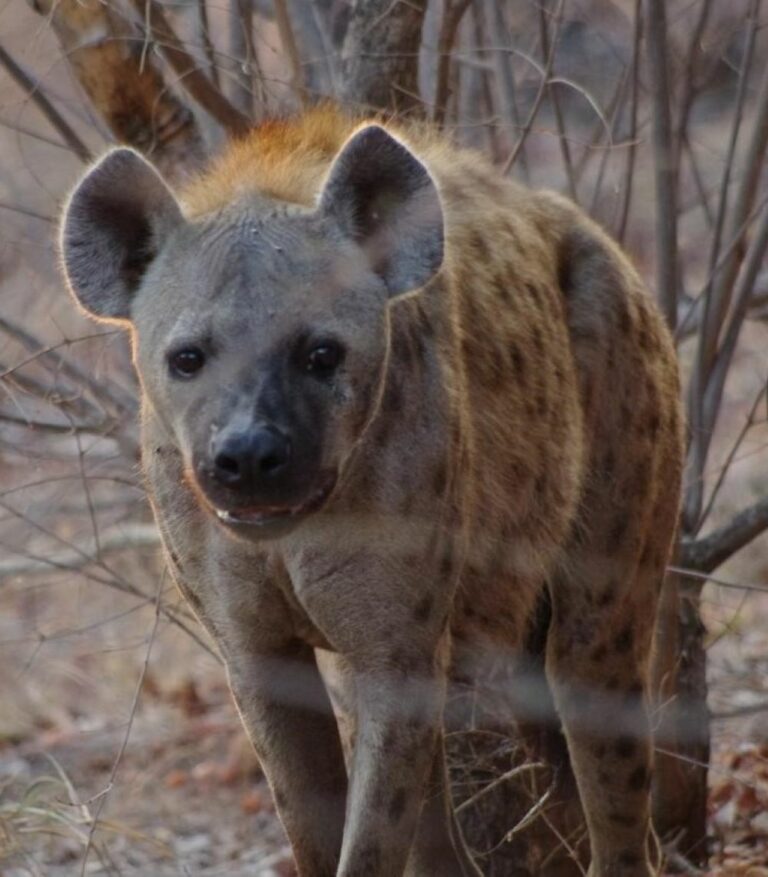
Where To Buy A Hyena
Game hunting safaris in Africa offer unmatched excitement and unforgettable experiences. For those with a passion for the outdoors and a thirst for adventure, it’s the ultimate way to connect with nature, test your skills, and embrace the raw beauty of the African wilderness.
Plan Your Safari
Planning is crucial for a successful hunting trip. First, we need to choose the right type of game. Africa boasts a rich variety, from the elusive leopard and powerful cape buffalo to the majestic lion. Each species brings its own set of challenges and rewards.
Next, select a reputable safari provider. Doing some research will help identify those that focus on ethical and sustainable practices, ensuring the conservation of wildlife. And let’s not forget to secure the necessary permits to comply with local regulations.
Essential Gear and Preparation
Africa’s terrain demands specialized gear and physical readiness. Packing appropriate clothing, durable boots, and high-quality binoculars is essential. Additionally, firearms suited to the game being hunted, such as a .375 H&H Magnum for big game, can make a significant difference.
Physical preparation can’t be underestimated either. Getting in shape before the trip helps cope with the physical demands and enhances the overall experience. It’s more fun when we’re fully prepared to traverse rugged landscapes.
Engaging Local Guides
Local guides bring invaluable expertise in tracking and safely navigating the areas. They share insights into animal behavior and strategies for making the hunt successful. It’s often their knowledge that turns a good safari into an extraordinary one.
Hunting Techniques
Various hunting techniques add layers of excitement to the adventure. Baiting from a blind involves strategically placing bait and quietly waiting for the hyena or leopard to show up. Calling with distress sounds can attract predators like lions, creating a thrilling experience. And the spot-and-stalk method demands immense patience and skill, making every encounter rewarding.
Being Safe and Ethical
Safety’s always our priority on these hunts. Keeping a safe distance from dangerous animals and following the guide’s instructions ensures our well-being. We also emphasize ethical hunting practices. Conservation should benefit from our activities, so following the rules and respecting wildlife contribute positively to the region’s ecology.
Enjoy the Full Experience
While the hunt is exhilarating, we encourage embracing the full safari experience. The African landscape, with its breathtaking views and diverse flora and fauna, offers refreshing moments of peace and wonder. Observing animals in their natural habitats, be it elephants bathing or birds in flight, adds depth to the adventure.
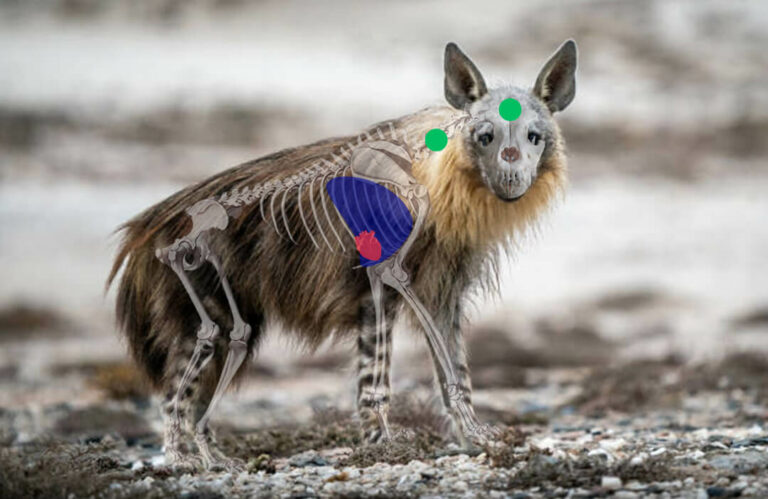
Planning Your Safari
Choosing the Right Game
When selecting the game for your hunting adventure, consider your interests and experience level. Africa hosts a variety of big game, including hyena hunts, cape buffalo hunts, and hippo hunts. Each species presents a different challenge and requires specific strategies.
Selecting a Reputable Safari Provider
An experienced safari provider ensures a safe and successful hunt. Look for providers with positive reviews, comprehensive packages, and knowledgeable guides. Services from the African Hunting Safari Broker offer tailored experiences to meet your needs.
Understanding Local Laws and Regulations
Getting acquainted with the local hunting laws and regulations is crucial for an ethical hunt. Different countries and regions in Africa have varying requirements regarding permits and hunting seasons. Adhere to these guidelines to ensure a legal and ethical hunt.
Hunting Techniques
Baiting from a Blind
Baiting involves placing attractants to lure game to a specific location. Set up a blind in a strategic spot and wait for the target. This method is especially effective for nocturnal animals like hyenas.
Calling with Distress Sounds
Use distress calls to mimic the sounds of prey in distress. These calls can attract predators like leopard hunting. Utilize high-quality electronic callers or manual calls for better results.
Spot-and-Stalk Techniques
Spot-and-stalk is a dynamic and challenging method. Locate the game from a distance and plan an approach considering wind direction and cover. This technique is widely used for big game hunting in Africa, providing an adrenaline-pumping experience.
Essential Gear
Firearms and Ammunition
Select appropriate firearms and ammunition based on the game you intend to hunt. Large game requires powerful rifles with high-caliber ammunition. Consult with your safari provider and local regulations to ensure compliance.
Clothing and Footwear
Africa’s weather can be intense, ranging from scorching days to freezing nights. Pack lightweight, breathable clothing for the day and warmer layers for the evening. Sturdy, comfortable boots are essential for navigating the terrain.
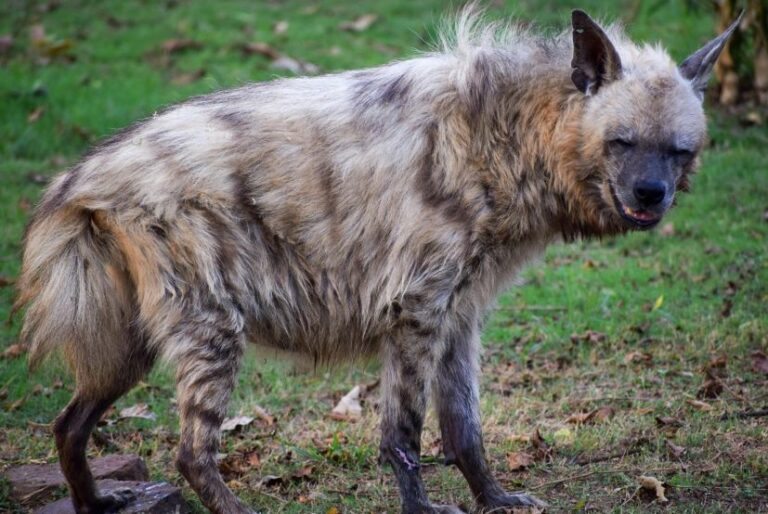
Physical and Mental Preparation
Endurance Training
Prepare your body for the demanding African terrain. Focus on cardiovascular exercises to boost stamina and strength training for carrying gear.
Mental Resilience
Mental toughness is as important as physical endurance. Adopt a focused mindset and stay calm under pressure. Practice meditation or mindfulness techniques to enhance your safari experience.
Role of Local Guides
Expertise and Knowledge
Local guides possess invaluable knowledge of the terrain and wildlife behavior. Their expertise increases your chances of a successful hunt and ensures an immersive experience.
Safety Measures
Guides prioritize safety, instructing you on best practices and emergency procedures. Trust their judgment and follow their guidance to ensure a secure hunting experience.
Conservation Efforts
Sustainable Hunting Practices
Support sustainable hunting practices by following guidelines set by conservation authorities. Ethical hunting helps manage wildlife populations and funds conservation projects.
Community Involvement
Engage with local communities and contribute to their conservation efforts. Respect traditions and understand the cultural significance of hunting in Africa.
Frequently Asked Questions
What Are the Costs Involved?
Hunting trips vary in cost based on factors like game type, safari provider, and duration. Expect to pay between $2,000 and $15,000 for most Game Hunting Safaris.
When Is the Best Time for Hunting?
The best time for hunting in Africa depends on the game and region. Generally, the dry season (May to September) offers optimal conditions for most hunts.
Necessary Vaccinations
Stay informed about required vaccinations for your destination. Common vaccines include Yellow Fever, Hepatitis A and B, and Typhoid. Check the latest health advisories before traveling.
Regulations for Taking Meat and Trophies Home
Familiarize yourself with the export regulations for taking trophies and meat home. Comply with both local and international laws to avoid legal issues.
Planning a Game Hunting Safari takes preparation and understanding, ensuring a memorable and successful experience. For more information, visit Game Hunting Safaris.
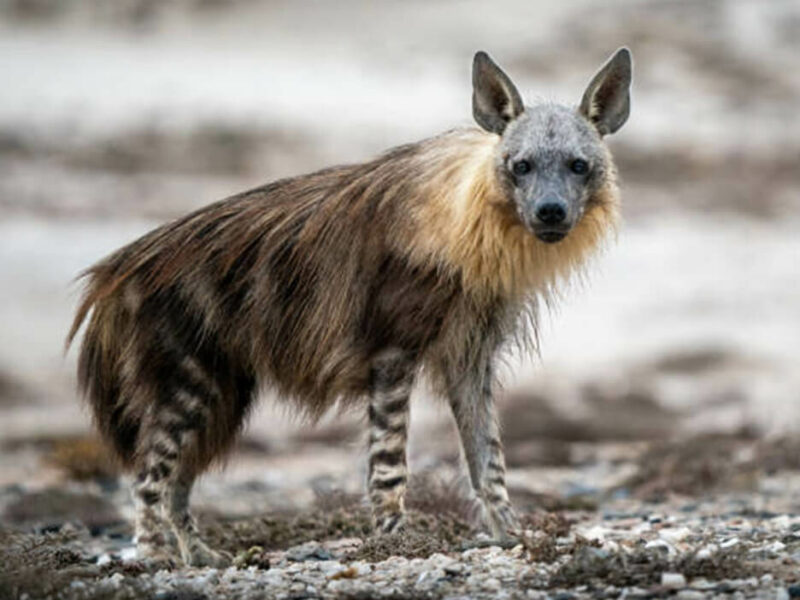
Ethical And Welfare Concerns
When considering hyena hunting in South Africa, it’s essential to address the ethical and welfare concerns. First, every hunter must ensure that their activities adhere to both local and international conservation laws. These regulations exist to protect wildlife populations and maintain ecological balance. If hunters neglect these rules, they endanger species and contribute to harmful practices.
Next, let’s talk about the welfare of the animals. Ethical hunting requires minimizing suffering and utilizing techniques that result in a swift, humane kill. Using proper equipment and following best practices are crucial. For example, baiting hyenas from a blind or calling them with distress sounds are methods that, when done correctly, can reduce unnecessary suffering.
Moreover, we must consider the broader environmental impact. Unsustainable hunting practices can disrupt ecosystems and harm other species. Eco-conscious hunters need to select licensed guide services that follow sustainable practices. Reputable organizations ensure that hunts don’t negatively impact the environment.
In addition, engaging with local communities is vital. Many regions depend on wildlife tourism for income, and ethical hunting can contribute positively when done responsibly. By supporting local businesses and abiding by regional guidelines, hunters help preserve these communities and their natural resources. For further insight on planning a hunt, refer to Game Hunting Safaris.
Finally, it’s crucial to prioritize the conservation of hyenas. Despite their reputation, hyenas play an important role in their habitats. They are scavengers, which helps prevent the spread of disease by cleaning up animal carcasses. Hunters should view their actions in the context of broader conservation efforts and respect the species’ role in the ecosystem.
Addressing ethical and welfare concerns in hyena hunting involves respecting laws, minimizing animal suffering, considering environmental impact, supporting local communities, and prioritizing conservation. By doing so, we can ensure that our hunting practices are responsible and sustainable.
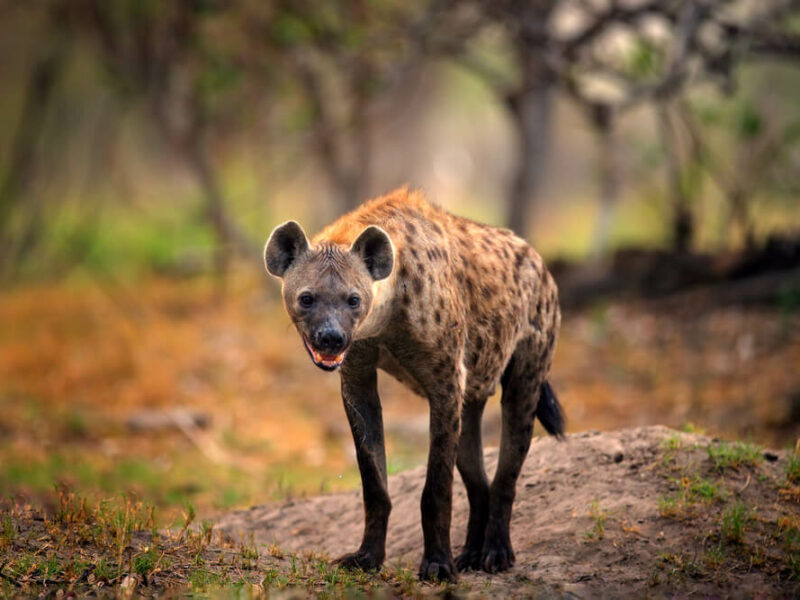
Conclusion
Planning a hyena hunting expedition in South Africa is a unique adventure that requires careful consideration and preparation. From understanding the different types of hyenas and their habitats to selecting the right hunting methods and ensuring ethical practices, there’s a lot to take into account.
We hope this guide has provided valuable insights into the costs, legal requirements, and essential preparations needed for a successful and responsible hunt. Engaging with local guides and supporting sustainable practices can enhance your experience while contributing positively to wildlife conservation.
Whether you’re drawn by the thrill of the hunt or the beauty of South African landscapes, a well-planned safari promises unforgettable memories.
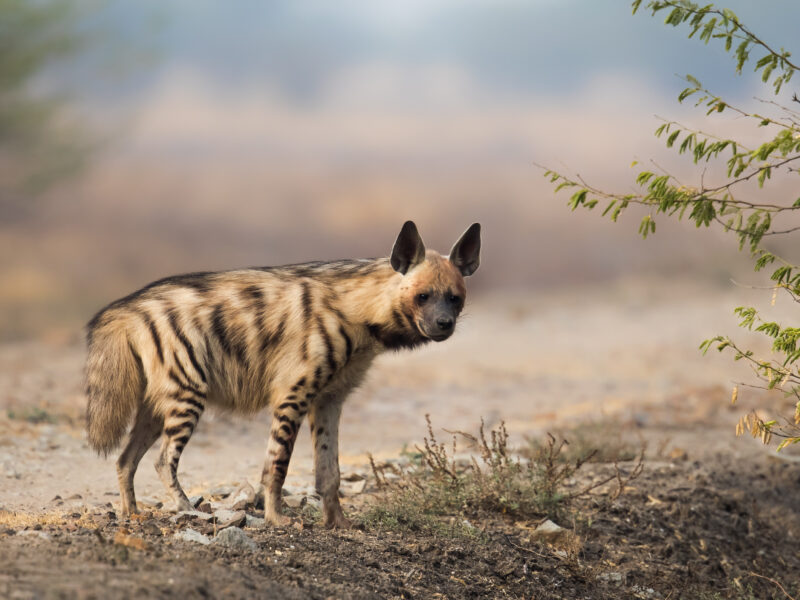
Frequently Asked Questions
What are the types of hyenas available for hunting in South Africa?
The three types of hyenas available for hunting in South Africa are the spotted hyena, the brown hyena, and the aardwolf.
What factors influence the cost of hunting hyenas in South Africa?
The cost varies based on the type of hyena, the region, and the hunting method used.
What are the primary habitats of hyenas in South Africa?
Hyenas thrive in semi-arid scrub, open plains, and dry savannas.
Where are the best locations for hunting hyenas in South Africa?
Key hunting locations include the Greater Kruger National Park and the Limpopo province.
What are the primary hunting methods for hyenas?
The main methods are baiting from a blind, calling with distress sounds, and the spot-and-stalk technique.
Are there legal considerations to keep in mind when hunting hyenas?
Yes, hunters must obtain a species permit and adhere to ethical and sustainable hunting practices.
Why is it important to engage with local guides during a hyena hunt?
Local guides offer essential expertise, helping ensure a safe and successful hunting experience.
What should hunters consider when planning a hunting safari in South Africa?
Choose the right game, select a reputable safari provider, understand local laws, and prepare the necessary gear and physical fitness.
What ethical considerations are associated with hyena hunting?
Hunters should follow humane practices, minimize animal suffering, and support local communities and conservation efforts.
What role do hyenas play in their ecosystems?
Hyenas are critical scavengers, helping to maintain ecological balance by cleaning up carcasses.
